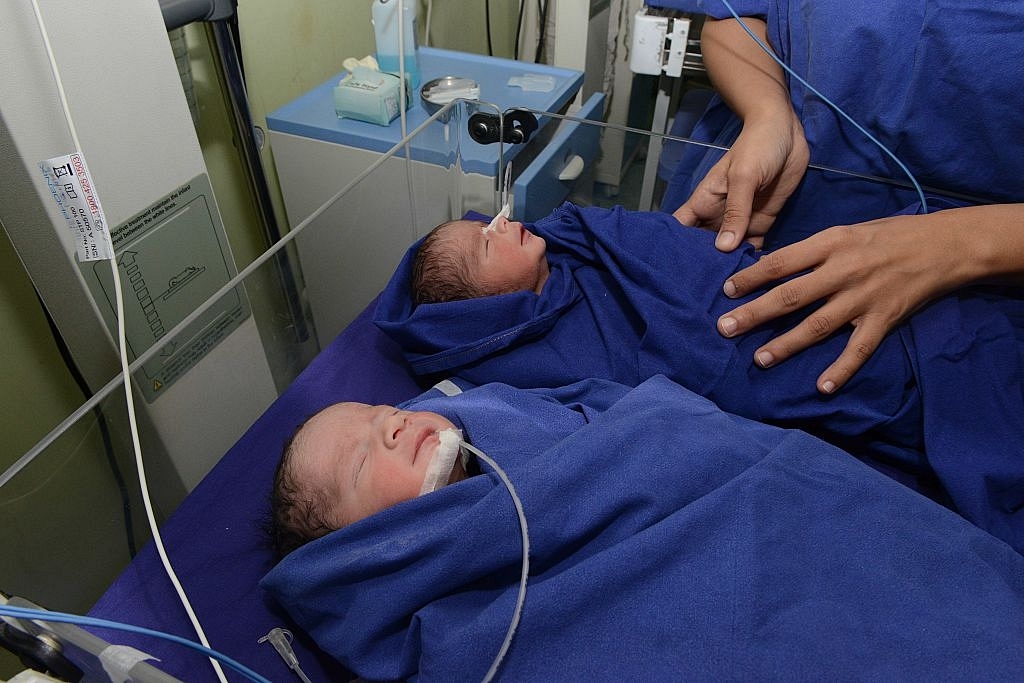Ideas
Making A Case For A More Regulated Surrogacy Market
- The poor and vulnerable women are being exploited in the name of surrogacy and are paid a very small amount for renting out their wombs.

Surrogacy in India (SAM PANTHAKY/AFP/Getty Images)
With the Indian government’s intent to clean up the commercial surrogacy industry, the patter of tiny feet may become a distant dream for many childless couples well past the expiry date of their hopes.
The government, however, aims to regulate a market that has been rife with unethical practices and health risks – the contractions that can soon give birth to the new surrogacy regulation law.
The 2016 Surrogacy Regulation Bill, which was cleared by the Cabinet on 24 August, may deal a big blow to the $2 billion industry in the country, but will stop the commissioning of easily available wombs for a fee by childless couples who may not have explored other assisted reproductive technology (ART) options, leave alone adoption.
Before November 2015, when the government imposed a ban commercial surrogacy, foreigners accounted for 80 percent of surrogacy births in India. Many European countries have banned the practice, both to protect the reproductive health of the surrogate mother as well as the future of the new-born.
Following many instances of exploitation of surrogate mothers and the issue of abandonment of the child, the 228th report of the Law Commission of India recommended prohibiting commercial surrogacy and allowing ethical altruistic surrogacy for needy Indian couples by enacting a suitable legislation. This new bill is the outcome of those recommendations.
Here are six key points that make a case for surrogacy regulation bill:
1. Due to a lack of awareness, poor and vulnerable women are being exploited in the name of surrogacy and are paid little to rent their wombs. The new bill, once enacted, will work towards empowering these women.
2. The new bill aims to set up National Surrogacy Board and state surrogacy boards. These boards will review surrogacy requests and streamline procedures to cut possible abuse of surrogate mother or the new-born child.
3. The bill will crack down on illegal agents and middlemen who act as go-betweens and make large amounts of money without caring for the interests of the surrogate mother or the child.
4. The introduction of the surrogacy law will pave the way for new legislations to regulate other forms of ARTs, like IVF, sperm banks and embryo transfers.
5. The introduction of strict penalty norm will deter those involved in illegal surrogacy.
6. Adoption is still an under-utilised option, and the government is trying to promote it because it not only gives happiness to a childless couple but also provides a future for an orphan child.
The bill is
expected to pass in the next session of parliament, and if it does, the ban
will come into effect 10 months later to allow surrogates who are already
pregnant to give birth.
Also
Read:
What’s
Wrong With A Surrogacy Market?
Support Swarajya's 50 Ground Reports Project & Sponsor A Story
Every general election Swarajya does a 50 ground reports project.
Aimed only at serious readers and those who appreciate the nuances of political undercurrents, the project provides a sense of India's electoral landscape. As you know, these reports are produced after considerable investment of travel, time and effort on the ground.
This time too we've kicked off the project in style and have covered over 30 constituencies already. If you're someone who appreciates such work and have enjoyed our coverage please consider sponsoring a ground report for just Rs 2999 to Rs 19,999 - it goes a long way in helping us produce more quality reportage.
You can also back this project by becoming a subscriber for as little as Rs 999 - so do click on this links and choose a plan that suits you and back us.
Click below to contribute.
Latest